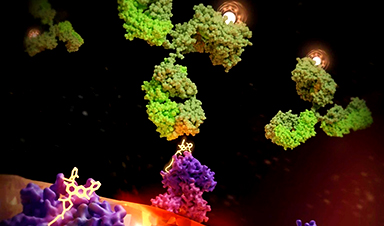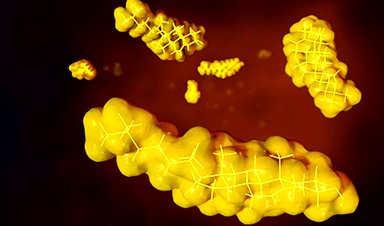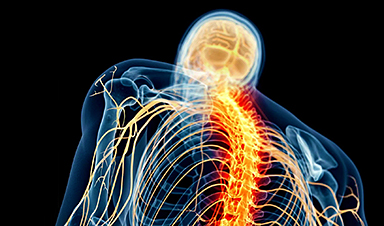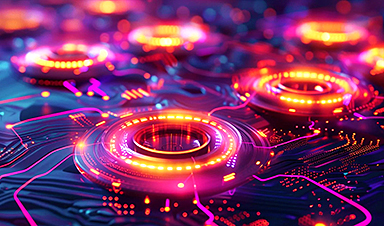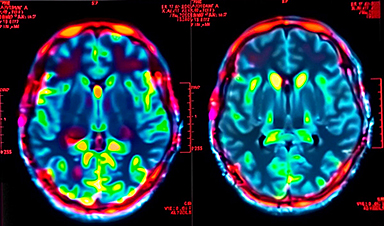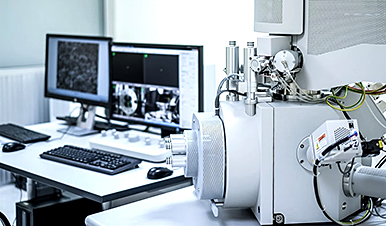Inflammation of the arteries is a primary precursor and driver of cardiovascular disease—the No. 1 killer of people in the United States. This inflammation is associated with the buildup of dangerous plaque inside the arteries. Advanced treatments are needed to target this inflammation in patients. Michigan State University researchers have tested a new nanoparticle nanotherapy infusion that precisely targets inflammation and activates the immune system to help clear out arterial plaque.
“There are two different things that people seem to be scared of when it comes to plaques,” said Bryan Smith, an associate professor with the Department of Biomedical Engineering in the College of Engineering and MSU’s Institute for Quantitative Health Science and Engineering. “Many people don’t really understand the difference between them.”
The first example is when your artery becomes blocked (for example, a 95% to 99% blockage). Often, there are symptoms like pain or pressure in the chest or nausea and dizziness beforehand and doctors will put a stent in the artery to increase blood flow. The second is when the plaque is highly inflammatory. This can make the plaque vulnerable to rupture, which can lead to artery blockages elsewhere in the body.
“That’s the scarier one that leads to most heart attacks,” said Smith. “Because such plaques don’t necessarily block much of the artery, and because the effects of the rupture can very suddenly completely block blood flow, such a heart attack can seem to appear as if from nowhere.”

Smith and his team, including co-first authors postdoctoral fellows Yapei Zhang and Manisha Kumari, created nanoparticles—materials that are thinner than a human hair—that they used to develop a nanotherapy infusion. The nanotherapy selectively targets a specific immune cell type that moves into and is a part of the plaque. These treated cells “eat” away parts of the plaque core, removing it from the artery wall and decreasing levels of blood vessel inflammation.
Previous studies by Smith and his collaborators, the Leeper Lab at Stanford University, tested the infusion on mice and now, pig models, to prove the infusion’s effectiveness, and critically, its lack of side effects due to its precision immune targeting.
“Using PET [positron-emission tomography] scans, we were able to measure the effects of the therapy on pig arteries,” said Smith. “We showed in animal models such as pigs that we can decrease the levels of inflammation in the plaque based not only on this clinically used PET imaging technique but also by molecular assays. Just as importantly, we saw none of the side effects that would have been anticipated had the therapy not been precisely targeted.”
Earlier studies in mice required hundreds of microliters of the nanotherapy infusion, but most recently, Smith and his team have achieved a measurable impact in pigs by scaling up the amount produced to liters. These volumes are in the range needed for human use. This study represents a critical step toward translation to patient clinical trials of safer, more effective cardiovascular therapies.
More information: Sharika Bamezai et al, Pro-efferocytic nanotherapies reduce vascular inflammation without inducing anemia in a large animal model of atherosclerosis, Nature Communications (2024). DOI: 10.1038/s41467-024-52005-1
Journal information: Nature Communications
News
New mpox variant can spread rapidly across borders
International researchers, including from DTU National Food Institute, warn that the ongoing mpox outbreak in the Democratic Republic of the Congo (DRC) has the potential to spread across borders more rapidly. The mpox virus [...]
How far would you trust AI to make important decisions?
From tailored Netflix recommendations to personalized Facebook feeds, artificial intelligence (AI) adeptly serves content that matches our preferences and past behaviors. But while a restaurant tip or two is handy, how comfortable would you [...]
Can AI Really Think? Research Reveals Gaps in Logical Execution
While AI models can break down problems into structured steps, new research reveals they still fail at basic arithmetic and fact-checking—raising questions about their true reasoning abilities. Large Language Models (LLMs) have become indispensable [...]
Scientists Just Made Cancer Radiation Therapy Smarter, Safer, and More Precise
Scientists at UC San Francisco have developed a revolutionary cancer treatment that precisely targets tumors with radiation while sparing healthy tissues. By using a KRAS-targeting drug to mark cancer cells and attaching a radioactive [...]
Superbugs Are Losing to Science, Light, and a Little Spice
Texas A&M researchers have found that curcumin, when activated by light, can weaken antibiotic-resistant bacteria, restoring the effectiveness of conventional antibiotics. Curcumin: A Surprising Ally Against Superbugs In 2017, a woman admitted to a [...]
New Research Shatters the Perfect Pitch Myth
For decades, people believed absolute pitch was an exclusive ability granted only to those with the right genetics or early music training. But new research from the University of Surrey proves otherwise. It’s been [...]
Why Some Drinkers Suffer Devastating Liver Damage While Others Don’t
A study from Keck Medicine of USC found that heavy drinkers with diabetes, high blood pressure, or a large waistline are up to 2.4 times more likely to develop advanced liver disease. These conditions may amplify [...]
“Good” Cholesterol Could Be Bad for Your Eyes – New Study Raises Concerns
‘Good’ cholesterol may be linked to an increased risk of glaucoma in individuals over 55, while, paradoxically, ‘bad’ cholesterol may be associated with a lower risk. These findings challenge conventional beliefs about factors that [...]
Reawakening Dormant Nerve Cells: Groundbreaking Neurotechnology Restores Motor Function
A new electrical stimulation therapy for spinal muscle atrophy (SMA) has shown promise in reactivating motor neurons and improving movement. In a pilot clinical trial, three patients who received spinal cord stimulation for one [...]
AI’s Energy Crisis Solved? A Revolutionary Magnetic Chip Could Change Everything
AI is evolving at an incredible pace, but its growing energy demands pose a major challenge. Enter spintronic devices—new technology that mimics the brain’s efficiency by integrating memory and processing. Scientists in Japan have [...]
Nanotechnology for oil spill response and cleanup in coastal regions
(Nanowerk News) Cleaning up after a major oil spill is a long, expensive process, and the damage to a coastal region’s ecosystem can be significant. This is especially true for the world’s Arctic region, [...]
The Role of Nanotechnology in Space Exploration
Nanotechnology, which involves working with materials at the atomic or molecular level, is becoming increasingly important in space exploration. By improving strength, thermal stability, electrical conductivity, and radiation resistance, nanotechnology is helping create lighter, more [...]
New Study Challenges Beliefs About CBD in Pregnancy, Reveals Unexpected Risks
CBD is gaining popularity as a remedy for pregnancy symptoms like nausea and anxiety, but new research suggests it may not be as safe as many believe. A study from McMaster University found that [...]
Does COVID increase the risk of Alzheimer’s disease?
Scientists discover that even mild COVID-19 can alter brain proteins linked to Alzheimer’s disease, potentially increasing dementia risk—raising urgent public health concerns. A recent study published in the journal Nature Medicine investigated whether both mild and [...]
New MRI Study Reveals How Cannabis Alters Brain Activity and Weakens Memory
A massive new study sheds light on how cannabis affects the brain, particularly during cognitive tasks. Researchers analyzed over 1,000 young adults and found that both heavy lifetime use and recent cannabis consumption significantly reduced brain [...]
How to Assess Nanotoxicity: Key Methods and Protocols
With their high surface area and enhanced physicochemical properties, nanomaterials play a critical role in drug delivery, consumer products, and environmental technologies. However, their nanoscale dimensions enable interactions with cellular components in complex and [...]




